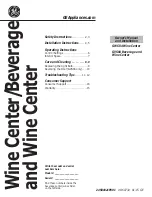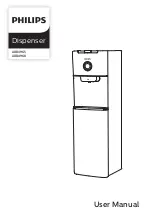
3
PLUMB INLET, OUTLET & DRAIN
Remove the red plastic caps from the softener inlet, outlet
and drain. Run the pipe-work from the bypass to the water
softener using WRAS approved flexible hose. Connect Hose
connectors, nuts and washers as diagram.
Connect the 3/8” drain tube via the air gap fitting by pushing the
tube firmly into the connection. Run the tube to a convenient
drain and connect to the drain via the air gap fitting. If the drain
runs outside it must be protected from freezing.
Important note: If the water
pressure is 2 bar or less the length
of the drain tube
must not exceed
3m
and
the
discharge point
should be below
the top of the
softener.
The
length of the
drain tube may
be
increased
by 1m, and the
discharge point
above the top of
the softener may increase by
0.5m, for each 1 bar above 2 bar.
15mm Indirect system
On a traditional indirect system
with a roof storage tank the
pressure limiting valve should
be installed after the rising main
stopcock and before the bypass set.
It may be installed before or after
the hard water tee to the outside
tap and drinking tap etc.
22mm Direct system
On the more modern direct system
there is normally a 3 bar pressure
limiting valve. This must always be
installed after the water softener
bypass. If you connect the 3 bar
pressure reducing valve before
the water softener there will be
insufficient flow.
22mm Direct system
Where you have a direct heating
system with the inlet pressure
above 6 bar then an additional
pressure limiting valve should be
fitted after the stopcock and before
the bypass. Note that the 3 bar
pressure limiting valve must always
be installed after the bypass.
5 bar pressure
limiting valve
4
PLUMB OVERFLOW
Connect the overflow hose to the
overflow elbow on the
side of the cabinet.
No securing clip is
necessary as it is not
under pressure. The
hose should be run
downhill all the way
and terminate at the
exterior of the building
if possible.
Outlet
Washer
Washer
Inlet
Drain
Where to fit a pressure reducing valve
3 bar pressure
limiting valve
3 bar pressure
limiting valve
5 bar pressure
limiting valve
1
DRAIN RISING MAIN
Before cutting the rising main, turn off the stopcock and open an
upstairs tap that is fed from the roof storage tank. Run sufficient
water so that the ball valve feeding the tank opens. Then turn on
the kitchen sink cold tap and let it run until it stops. Your rising
main is now empty.
2
INSTALL CHECK
VALVE & BYPASS
Cut the rising main and
fit the three valves as
shown to form a bypass.
Install proprietary valves
with direction of flow as
indicated. Garden taps and
hard water drinking
taps, if fitted, should
be teed off before
the bypass. You may have
to run additional pipe-
work to alter the existing
plumbing. A check valve
(complying with BS6282)
must be fitted in the rising
main before the bypass.
SEE POINT 3






















